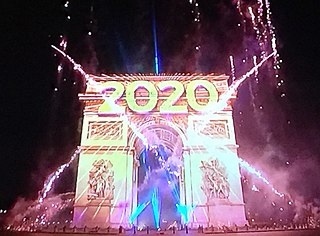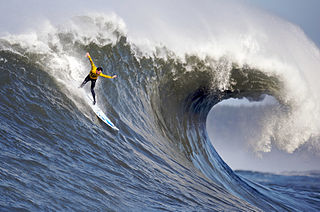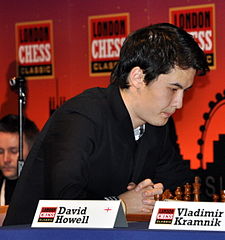
Welcome to the first week of 2020. Will you be setting goals? Or have you decided the annual ritual of introspection is an exercise in futility? This first year of a new decade, why not try something new, like catching a brass ring or being fully present in a state of flow?
THE BRASS RING
The phrase catching the brass ring refers to an unlikely and wonderful accomplishment. The brass ring might be a promotion, or it might be a life of complete satisfaction. One thing is sure, catching the brass ring was an unusual occurrence at the carousel rides.

Carousels were most popular from 1880 to 1921, and their most amazing feature, besides sound and speed, were horses and various fanciful creatures that rose and fell as the carousel whirled around. Before the ride began, children and teens rushed to mount these moveable creatures, leaving the outside ring with its fixed horses for the slowpokes.
Entrepreneurs in the carousel trade developed a game to make the ride interesting for those on the outside. They added a ring dispenser. Outside riders reached to grab a ring as they went past, but it was harder than it looked. Most of the rings were iron, but a few were brass. It was hard to grab any ring, but to grab a brass ring was exciting. It also entitled the winner to a free ride.

Reaching for the brass ring required luck, timing, and total concentration. Carousel horses were slippery, and a reach too far could result in a nasty accident if the player didn’t keep a firm grip on the pole. Today we call that state of intense concentration FLOW, and achieving a state of flow is a quest of increasing popularity.
THE QUEST FOR FLOW

The surfer in this picture is in a state of flow more intense than the carousel rider reaching for the brass ring. The surfer is one with the wave and his board, without any sense of external factors. Flow isn’t a state of intense concentration so much as existing in a state beyond it. There’s no thought. Only the sensation of the board on the water.
Mihaly Csikszentmihalyi, Distinguished Professor of Psychology and Management at Claremont Graduate University, encountered the state of flow as he researched what makes people happy. Almost anyone you ask will say she or he wants to be happy. The trick is figuring out how. Csikszentmihalyi concludes the way to happiness is finding your passion, developing the skills required to develop your passion, and allowing yourself to move into a state where only the passion exists.

Playing chess is an example of becoming fully engrossed in an activity. In 2007 David Howell became the youngest person in the UK to achieve the rank of Grandmaster. The suggestion is that when Howell and other chess masters play, they doesn’t consciously think about their moves. They simply enact them.
Csikszentmihalyi says that the ability to achieve flow provides a happier life.
“I developed a theory of optimal experience based on the concept of flow—the state in which people are so involved in an activity that nothing else seems to matter; the experience itself is so enjoyable that people will do it even at great cost, for the sheer sake of doing it.” *

Flow comes when a person is so engrossed in an activity, all else fades away. Writers, athletes, entrepreneurs, and people from all walks of life have the ability to reach a state of flow.
Flow is not about being productive, though that’s often a side benefit. It’s a state beyond productivity, a state where external distractions have no place. People in a state of flow have no awareness outside of their project.
ENTERING A STATE OF FLOW
Csikszentmihalyi and his team interviewed successful people about their experiences with flow, and found several commonalities.
- The individual is completely involved in the task. She’s not thinking about the dryer cycle or whether she remembered to close the car windows in case of rain, as I often do.
- Being in a state of flow is outside of normal reality. There’s no sense of outside or even inner stimuli. I read once that Albert Einstein routinely was so engrossed in his work, he forgot to eat lunch.
- People who experience flow have a sharp focus. They know what needs to be done and how well the task is going.
- They know their task is doable.
- They experience a sense of serenity while engaged in their project.
- They enter a state of timelessness. I equate this with a good writing day, when the darkness of twilight is my first clue of how long I’ve been working.
- People who experience a state of flow follow their passion into the task for its own sake. Writing is my passion, but not a lucrative career.
If you want to hear Csikszentmihalyi talk about his work, here’s a TED talk he gave in 2008.
2020 New Year Celebration in Paris by DDupard
Holyoke Merry Go Round Carousel 05 by Joe Mabel
Black Magic View by Nosha (catching the brass ring)
2010 Mavericks Surfing Competition by Shalom Jacobovitz
David Howell – London Chess Classic 2010 by Pawel Grochowalski
Lady at Writing Desk
Rachel Novak. “History of Brass Rings.” Henassgen Hardware. Nov. 21, 2014.
Maike Oppland. “8 Ways to Create Flow According to Mihaly Csikszentmihalyi.” Positive Psychology. Nov. 20, 2019.
Ransom Patterson. “The Flow State.” CollegeInfoGeek. April 27, 2018.

Sandra Wagner-Wright holds the doctoral degree in history and taught women’s and global history at the University of Hawai`i. Sandra travels for her research, most recently to Salem, Massachusetts, the setting of her new Salem Stories series. She also enjoys traveling for new experiences. Recent trips include Antarctica and a river cruise on the Rhine from Amsterdam to Basel.
Sandra particularly likes writing about strong women who make a difference. She lives in Hilo, Hawai`i with her family and writes a blog relating to history, travel, and the idiosyncrasies of life.

